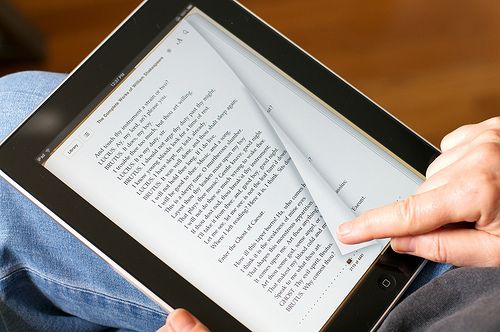For independent (indie) authors, the journey to publication often involves weighing two primary paths: full self-publishing or seeking a traditional deal. However, a third option, hybrid publishing, has gained significant traction, positioning itself as a viable and often appealing alternative. The crucial question for indie authors is: Are top hybrid book publishers truly worth the investment?
The answer, like much in publishing, isn’t a simple yes or no. It depends heavily on the individual author’s goals, resources, skills, and risk tolerance, as well as the specific hybrid publisher in question.
The Value Proposition of Hybrid Publishing for Indie Authors
Hybrid publishing essentially offers a “done-for-you” professional package for a fee. Here’s what makes it potentially worthwhile for many indie authors:
- Professional Polish and Credibility:
- The Problem for Indie Authors: While self-publishing allows complete creative control, it also demands that authors source and manage all professional services (editing, cover design, interior formatting) themselves. Achieving industry-standard quality across all these elements can be challenging and expensive if done piecemeal.
- Hybrid Solution: Reputable hybrid publishers provide a vetted team of professionals. This ensures your book receives high-quality editing, a professionally designed cover, and meticulous interior formatting, giving it the look and feel of a traditionally published book. This professional veneer can significantly boost credibility with readers, reviewers, and booksellers.
- Streamlined Process & Time Savings:
- The Problem for Indie Authors: Self-publishing is a steep learning curve. Authors must become project managers, understanding ISBNs, copyright, distribution platforms, print specifications, and more. This can divert significant time and energy away from writing.
- Hybrid Solution: Hybrid publishers manage the complex production workflow. They coordinate editors, designers, and formatters, and handle the technical setup for distribution. This frees up the author’s time to focus on writing their next book or on core marketing activities.
- Wider Distribution Access:
- The Problem for Indie Authors: While platforms like Amazon KDP Print and IngramSpark offer broad online distribution, getting into physical bookstores and libraries as a purely self-published author remains an uphill battle.
- Hybrid Solution: Many legitimate hybrid publishers have established relationships with major distributors like Ingram Content Group, making your book discoverable by thousands of bookstores and libraries. While this doesn’t guarantee shelf space, it significantly increases the potential for physical retail presence and library acquisition that many indie authors struggle to achieve on their own.
- Marketing Guidance and Support:
- The Problem for Indie Authors: Marketing is often the biggest hurdle for self-published authors. Without a publisher’s built-in marketing team, authors are entirely responsible for promoting their work.
- Hybrid Solution: Reputable hybrid publishers typically provide strategic marketing guidance, metadata optimization, and foundational promotional efforts. They can offer insights into building an author platform, running effective campaigns, and leveraging their network for reviews or publicity. While the author remains the primary marketer, they gain a partner and resources.
- Higher Royalties than Traditional Publishing:
- The Problem for Indie Authors (Traditional Route): Traditional publishing offers low royalty rates (5-15% of net).
- Hybrid Solution: Because authors invest upfront, hybrid publishers offer significantly higher royalties (often 50% or more of net sales), making each sale more profitable for the author.
When Hybrid Might NOT Be Worth It for Indie Authors
Despite the benefits, there are scenarios where hybrid publishing might not be the best fit or where the investment might not yield sufficient returns:
- If You’re Highly Skilled and Time-Rich: If you have the expertise (or willingness to learn) in editing, design, formatting, and marketing, and you have the time to dedicate to these tasks, self-publishing directly will result in higher per-book profits as you won’t be sharing royalties.
- Financial Constraints: Hybrid publishing requires a significant upfront investment (often thousands to tens of thousands of dollars). If recouping this investment is your primary goal and financial risk is a major concern, the cost might outweigh the potential return, especially for a first-time author without an established audience.
- Lack of Vetting by the “Hybrid”: A key danger is falling for a vanity press disguised as a hybrid. If a “hybrid” publisher accepts any manuscript without editorial vetting, promises guaranteed bestsellers, or has unclear contracts/hidden fees, they are simply selling publishing services, not offering a true partnership. This is rarely worth the investment.
- Unrealistic Marketing Expectations: Some authors join hybrids expecting the publisher to handle all marketing. If you’re not prepared to actively participate in promoting your book, even with a hybrid partner, your sales will likely suffer, making the investment less worthwhile.
The Verdict: A Strategic Investment for the Right Author
For indie authors who:
- Value professional quality and industry credibility but want more control than traditional publishing offers.
- Are willing to invest financially in their book’s success.
- Want to save time on the technical aspects of production and distribution.
- Are prepared to collaborate on marketing but appreciate strategic guidance.
- Have carefully vetted the hybrid publisher against industry standards (like IBPA’s criteria).
…then hybrid publishing can absolutely be worth the investment. It’s a strategic choice for those seeking a high-quality, professionally supported path to market without relinquishing complete control or shouldering the entire burden of self-publishing. For others, particularly those on a very tight budget or those who thrive on absolute DIY control, direct self-publishing might be more suitable. The key is thorough research and a clear understanding of your own goals.

